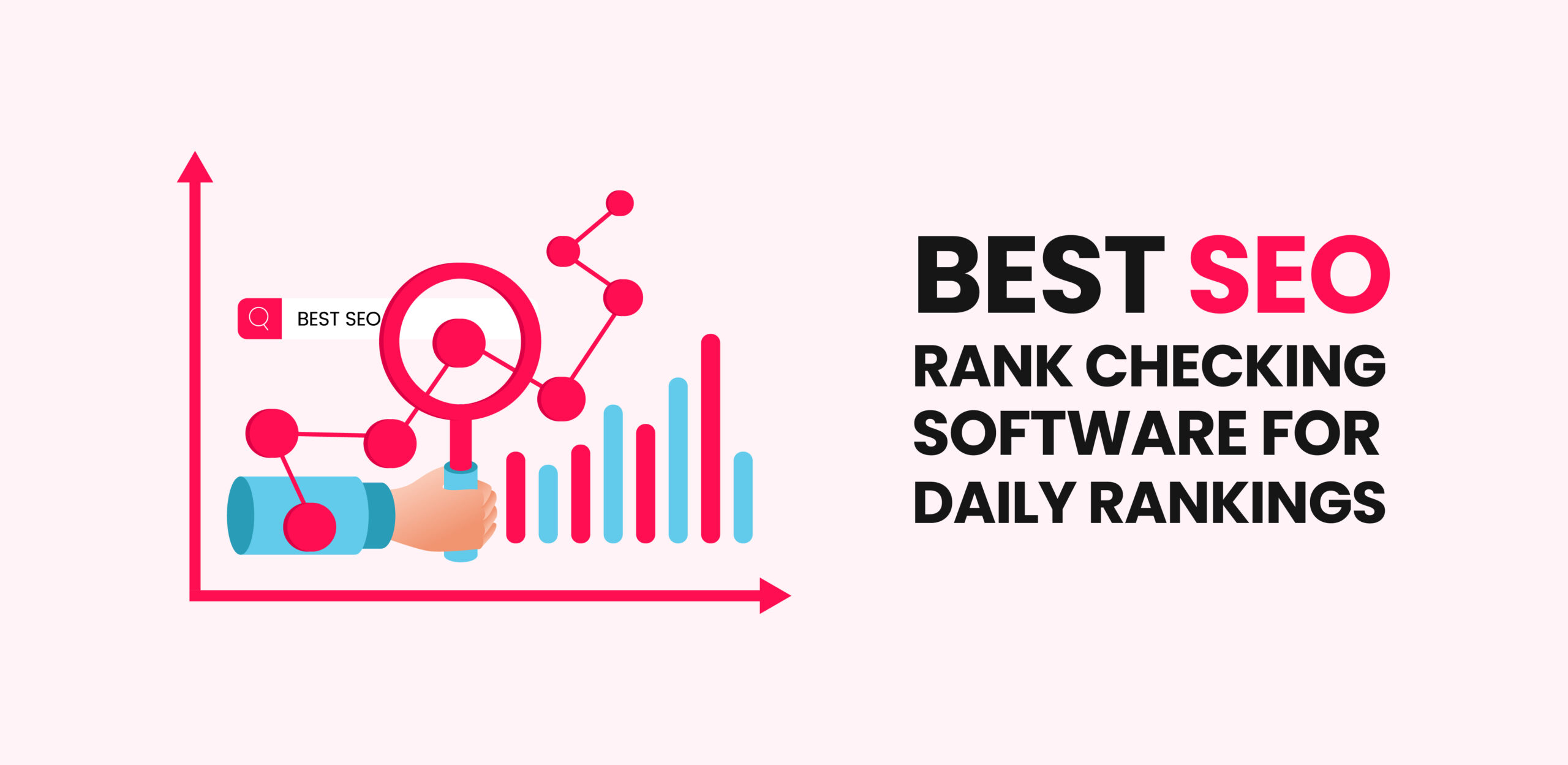Looking to outrank your competitors in the real estate sector? Your stars may be in alignment because you are about to unlock the cheat sheet for real estate SEO.
But why is it important? According to a study by Statista, about 99% of US citizens in their late 20s to 50s search for homes on the internet. This means that you may be missing out on a huge opportunity for leads if your website is not optimized for SEO.
Using strategies to execute SEO for realtors helps bring up your website on search engines whenever someone is searching online for a property. A 2019 study suggests that 50% of homeowners found their desired properties via online sources. Therefore, applying techniques that push your site up on the SERP will open doors to a huge number of potential customers. For example, the keyword “rental apartments” presents the following result.
See how Apartment.com is listed above Zillow — the topmost real estate platform for buying and selling? This is because this site has effectively used relevant keywords and optimization techniques to land the first position on Google.
Fortunately, you can also push through top rankings on online search engines with a few simple tricks. Follow this comprehensive guide to rank your way to the top and generate hundreds, if not thousands, of leads without actively spending money.
In this article, we’ll show you:
- Importance of real estate SEO for websites owned by realtors and real estate agencies.
- What are the steps to run a real estate SEO audit to strategize effectively?
- How to do SEO for real estate websites?
Importance of SEO For Real Estate
Real estate SEO puts your website in the limelight within the SERP, allowing it to come across users hunting for a property or home.
Simply put, if you want your website seen, it must be optimized for search engines.
A 2024 report by the National Realtor Association highlighted some important stats related to buyer behavior, which essentially highlights the importance of real estate SEO implementation.
- In 2024, 43% of home buyers started off their house research by looking for properties on the internet.
- 21% of online buyers reached out to a real estate agent after their initial online research.
- 100% of buyers from America who bought a house in 2024 used the internet to search for a home.
- Most users considered websites using photos (41%), property information (39%), and floor plans (31%) quite helpful.
This means that your customers are likely to do extensive research online before they even visit a property. Hence, the need to implement real estate SEO strategies that reposition your website on top of the search engine results page. Eventually, these efforts will prompt more users to find and visit your site for their property purchasing and selling requirements.
Look at Zillow, for example:
This online real estate giant spends quite a bit on real estate SEO marketing with paid ads. Case in point: check all their ads for the keyword “buy apartments in Seattle”:
However, despite their impressive ad spend, they are also ranking #1 organically for the same search query:
This is because their pages provide value and relevance, while addressing the search intent of users. You can do that too. With appropriate keyword optimization, off-page adaptations, technical adjustments, and local SEO tactics.
I think now we have established the importance of search engine optimization in real estate. Next, let’s have a look at some strategies and tips you can follow to ensure that your real estate listings rank among the top spots for keywords like:
- My first property
- Buy a house
- Apartments in (city)
- Rental income
- Housing schemes
- Home loan schemes
- Housing laws
Real Estate SEO Audit: Where To Start?
Nitpicking is only good when running an SEO audit for websites of nearly any niche. It unlocks key areas for improvement in the first phase of planning, boosting chances of success with a clear roadmap for the future. Here are a few steps to follow when working on a real estate SEO audit.
On-Page SEO: Check on-page elements such as content quality, headings, keywords, meta tags, and image Alt tags to ensure it complies with fundamental SEO standards.
Off-Page SEO: Take a peak into the backlink profile, brand mentions, and user engagements to get a sense of off page SEO performance.
Local SEO: Check if the website is optimized for local features like Snack Packs, Google Maps, Google My Business, Local Guides, and Local Services Ads.
Technical SEO: To optimize technical SEO for real estate, uncover hidden errors and site issues, such as indexing failures, UX/UI problems, site speed, etc.
Content: Check to see if your content provides value to readers. It should be original, have clear formatting, be up-to-date, and maintain coherence in quality.
Traffic: Review current traffic and impressions to get a sense of where your site stands in terms of search engine performance.
Competition: Perform a rundown of your competitors and their winning strategies. You can leverage this information to unlock potential opportunities for your own real estate business.
8 Point-Blank Strategies For Real Estate SEO Optimization:
As a real estate business, applying the right SEO strategy is the foundation that nurtures your business growth. To put it simply, better rankings mean a greater chance of traffic that converts. So, when you are ready to optimize your website for online search, these tips will come in handy. They can help land top SERP positions and, consequently, generate more revenue as a real estate agent or agency.
Make your strategic decisions with these tried and tested ways to improve SEO for realtors and agencies.
Push for Local Listings
How many times have you searched for something on your phone with the intention to find a locally placed business? In case of property, local SEO remains at the forefront, owing to the fact that people are likely to search for a place to live in the city or neighborhood they already reside in.
In general, local SEO is meant for physical businesses, as it relies on queries that include a location name in search terms. For example, for the search query “real estate agent in virginia,” here is what you get:
Those top 3-4 results in the Local Pack have mastered local SEO, which allows them to rank in the Google’s Google Local Pack. This list used to consist of 7 results, but since 2015, Google has restricted listings to show only three results. This means that the competition has gotten significantly higher, and more than half of the businesses that used to rank in the “7-packs” don’t have a place in the “3-pack” category.
Take a look at these search results for “Electricians in Boston.” The snapshots are taken to show a before-and-after the update preview of the Google Local Pack.
If you own a real estate website and want to appear in the top search listings on Google, the first thing you need to focus on is getting the local SEO right. Local SEO for real estate website is what a foundation is to a house — without it, nothing strong or lasting can be built.
Remember, Google does not display the same results for everyone. Your search results are personalized depending on your search history, preferences, and location. This means that a person searching for condos in Miami, FL, will find different results than one in Chicago, IL.
If you want to implement real estate SEO efficiently, you will need to identify the regions where you want to rank well and the pages you want to display in those search results. After all, there’s no point in trying to show a Miami listing to someone who’s searching for “condos in Chicago.”
Claim Your Google My Business Listing
As a real estate business, claiming your Google My Business listing should be one of the first things you do to strengthen your online presence. This means listing your business details on Google, including business name, address, and phone number. We also call this your NAP (Name, Address, and Phone Number).
It’s very important that your NAP is consistent across all digital channels. This includes your website, social media pages, and accounts. Once you’ve claimed your Google My Business listing, you will start appearing on local search results within Google SERPs, Local Packs, and Google Maps.
After your Google My Business Listing has been verified, you can also list your business on Facebook, Yelp, Yellow Pages, Foursquare, and local directories. This ensures that when a user searches for real estate agencies or listings on these platforms instead of Google, you appear in their results.
Perform Extensive Keyword Research for Real Estate
We’ve analyzed thousands of different real estate keywords to arrive at a winning formula. Our research shows that the best real estate SEO keywords use the following format:
“city name” real estate
“city name” homes for sale
“city name + state abr” real estate
“city name + state abr” homes for sale
“property type” for sale in “city name”
“property type” for sale in “city name + state abr”
buy + “property type” in “city name”
buy + “property type” in “city name + state abr”
You will need to study your market fully before you can create an exhaustive list of real estate keywords that will help you rank higher. However, you should also know Google is moving away from keywords to search intent. This is good news for both real estate businesses and search users. This means that you can rank for keywords that are not explicitly mentioned on your page as long as you are satisfying a search query, while search users get to see relevant results that help them make a decision.
Prioritize Creating City-Specific Content
Creating city-specific content comprising blogs, web pages, transcribed videos, and discussions is a game-changer real estate content strategy. It can highlight you in local search with better rankings in a targeted region. While this involves a lot of research and hours of writing, editing, and publishing, the end result is worth it.
This also ties into the concept of E-E-A-T, which is an acronym for Experience, Expertise, Authoritativeness, and Trustworthiness. Google will reward sites that follow E-E-A-T standards, and one way to improve your E-E-A-T is to be seen as an authority on the subject.
But how does that impact real estate SEO?
Let’s talk about a fictional scenario: Emily is moving from her hometown of Scranton, PA, to Chicago because she found a great job there. She’s looking to rent an apartment in the city. Probably the first thing she’s going to do, apart from asking around her social circle, is to Google “moving to Chicago.”
If you, a real estate agent, were to create useful, engaging, and actionable content that answers Emily’s query by telling her everything she needs to know before making the jump, you would increase the chances of her TRUSTING you. Eventually, this will prompt her to rely on your website to explore apartments in Chicago.
Take this as an example. Nelson Westberg provides this guide for the keyword “moving to Chicago”. It is an all-around article offering tips and tricks about all things Chicago, including popular neighborhoods, living costs, and a moving checklist.
Creating such top-funnel content opens up opportunities to hook a user when they are in their initial research phase. If you’re not sure about what to write, you can create useful content around the following topics:
- City landmarks and attractions
- Economy, jobs, and top employers
- Schools and neighborhoods
- Restaurants and shopping
- Transportation
- Things to do
Make Sure Your Website Is Mobile-Friendly
Google has shifted to mobile-first indexing, which means that your website’s mobile version is given more importance than the desktop one. If your website is still not optimized for mobile viewers, it’s time to shift this into your priority tasks list.
According to a 2023 report by the National Association of Realtors, 73% of all buyers used a mobile or tablet as a search device to find a home, and 51% were able to find a home using the internet. So, the verdict is pretty clear for real estate websites: it’s mobile first or a complete bust.
Adjust Technical Aspects of the Website
Among the most common reasons for real estate website users to bounce back is site speed and 404 errors. To check for errors on your website, go to the Ahrefs Site Audit tool, start a new crawl, and the final result will give you a list of technical errors and warnings that need fixing.
Aside from that, some other technical aspects of a site must also be addressed to ensure that it is working correctly and provides the best user experience.
Follow this checklist to restore site health.
Upgrade to HTTPS
Source: Server Fault
Ditch HTTP and go for HTTPS on your site. The ‘S’ at the end of HTTPS stands for ‘Secure’ because all information transferred between the browser and your site is encrypted using an SSL certificate. Google places more trust in sites with HTTPS, which helps you with rankings.
Implement Schema Markup
Schema markup refers to specific tags that “tell” Google how to display your page information on the SERPs. Use schema markup to let search engine crawlers understand content better and catalog all the information on your site.
This will give you an edge over your competitors who are too lazy to make schema work for them. The topic of schema markup is slightly long and technical. If you’re interested, here is a helpful resource from our blog section to introduce you to the topic.
Fix Broken Links
Source: Varvy
Another best practice is to periodically audit your website for broken links. You can run it in small sprints by checking particular sections at a time. Chances are – you will find some broken links to internal listings. These are links that have been removed or are coming from a page whose URL has been changed.
Broken links have an adverse impact on the user experience as they temporarily halt their search and, by extension, their journey down your sales funnel. You can use the free version of tools like Screaming Frog SEO Spider to check for broken links.
Manage Indexing Issues
SEOs should also ensure that all of their pages are indexable and included in the XML sitemap. Run a GSC analysis to check which pages on your site are presenting indexing errors. Fix the specified issues to ensure that the pages are ready to be crawled.
Set Up Redirects & Canonical Tags
Redirects 404s to home page or other relevant pages on the site, and make sure any canonical tags are specified for duplicate pages, or pages covering the same topic.
Ensure Shorter Load Times:
Run CWV tests to analyze site speed and take actions to avoid delays in page load time. Few ways to do this are to avoid images with large file sizes and implement caching for repeat visitors. Removing broken links and fixing internal links are also some indirect factors that improve page speed.
Obtain Quality Backlinks From Same Niche Sites
Getting backlinks can help strengthen your website’s overall authority score by getting a vote of confidence from top sites on the web. This involves guest posts, directory listings, citations, image links, and social media links.
Plan Guest Posting
The key here is to identify reputable publishers within the real estate industry and contribute content to their sites. Most publishers are hungry for quality content, since there’s only so much their in-house team can create.
Guest blogs are a great way to earn backlinks that point back to your site. If your content is really good, you will be able to publish it on some of the biggest names in your niche and get backlinks from authoritative websites.
However, effective link building requires a lot of resources. If all of these sounds overwhelming, you can always use the help of an experienced link building agency to help you out. Let us take over your website’s link building for real estate SEO and real results.
Target Social Media Backlinks
Most of the real estate agents have active accounts on popular social media channels, like Facebook, LinkedIn, and Instagram. It’s backed by multiple studies, including a survey by NAR, claiming that 89% of real estate agents use Facebook for their business affairs.
Given that these people are your competitors, it’s fair to put your efforts into getting backlinks from such platforms. While they may not directly impact your rankings, its good for brand visibility and reputation.
Get Local Citations
A local citation is any mention or listing of your business on the web. Complete citations, including your NAP (company name, address, and phone number), are extremely important to rank for local search results.
Most citations come with either no backlink or a no-followed link – that’s fine. If you get citations with backlinks to your site, that’s even better, as it helps strengthen your overall backlink profile.
Where can you get citations as a real estate agency? Try Yelp, Yellow Pages, Facebook, Instagram, Realtor.com, Zillow, Foursquare, Nextdoor, Apple Maps, Bing Places, etc.
Focus on Earning Online Reviews
Get organic reviews on popular platforms to improve your brand image and boost your online presence. Make sure your reviews are not artificial or paid for, as this will hurt your real estate SEO rankings.
Getting positive feedback on Google Reviews, social media pages, Trustpilot, and Yelp is a positive sign. It helps you leverage your current clients to land new customers. It’s pretty easy—all you have to do is ask your clients who have had a good experience with your business to share their experiences about your services. Research shows that 83% of customers are willing to refer a business or brand after a positive experience, so go get those reviews!
Real SEO Donts: What To Avoid
Now that you have a decent idea of what strategies to follow in order to push your real estate website to the first page on Google, there are a few things you should avoid in order to avoid sudden drops an dips in traffic. Let’s see what they are:
Don’t delve into black-hat SEO techniques – However attractive they may appear, black hat techniques always end up harming your website and search rankings. Most of these techniques are old, but some marketers still find new ways to exploit the system. Given the learning speed of Google’s algorithms in light of recent updates, we wouldn’t recommend using these at all.
Don’t lose patience – As stated at the beginning of this article, SEO takes time. Don’t expect your newly developed website to get to the first page of Google overnight. Good SEO takes time, but the results are long-lasting. You can expect good leads for years to come.
Be careful with website changes – If, for some reason, you are revamping your website partially or completely, make sure that your navigational framework is correct. For example, moving over content from an old site to a new one. In this case, it’s important to set up 301 redirects to ensure that users are taken to the fresh pages.
Our Mantra: Start Slow, Finish Strong!
So this concludes one of the most comprehensive real estate SEO guides that you’ll find on the internet. Keep in mind, if you choose a strategy from this article, make sure you follow through with it till the end in order to get the most out of your efforts. </span>
>Remember, despite being a highly competitive sphere, real estate websites still have a good chance of landing on the first page of Google. But, you have to be ready to put in efforts if you want people to invest in a property that you’re selling. In essence, what you need is the right technique and a solid SEO plan that’s followed through consistently for sustainable results. </span>




















